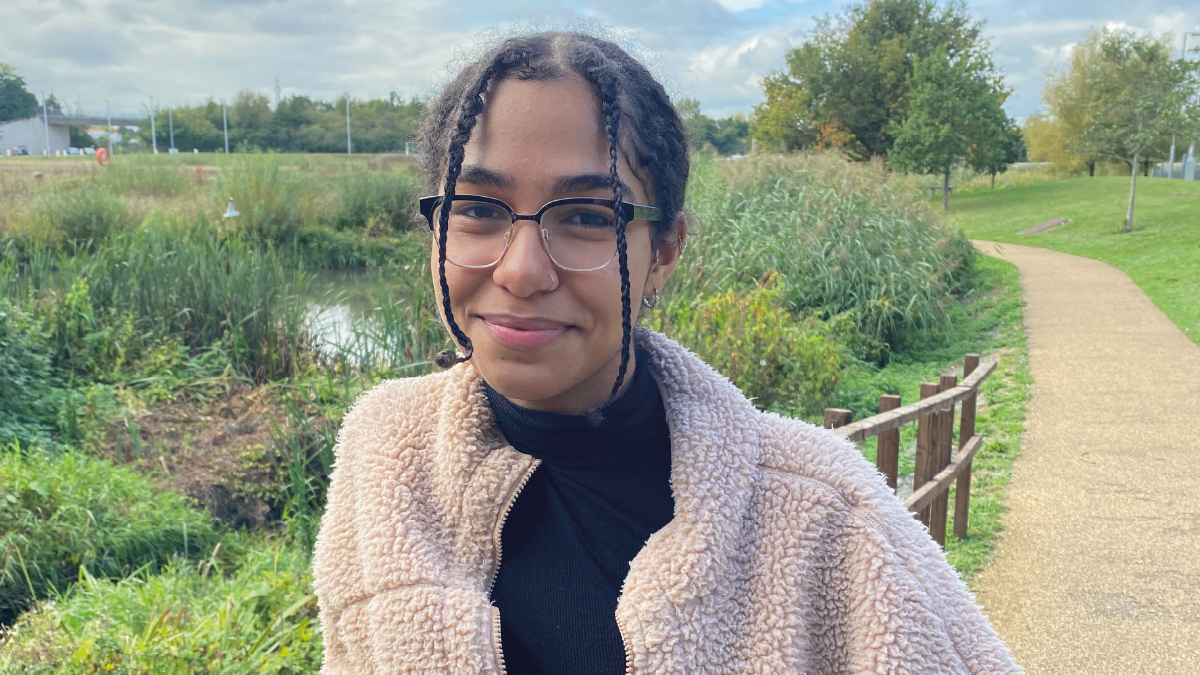Education must lead the way if everyone is to have the chance of prosperity and resilience
Ayishia Jones overcame many odds to reach higher education and is now a strong advocate for social justice. Currently working towards a degree in Education Studies with the aspiration of becoming a teacher, Ayishia discusses her degree and her journey to the University of Reading.
“BA Education Studies allows me to focus on a spectrum of issues, with social justice being at the forefront, whilst following my long-term plan to be a teacher. This is important to me because I see how greatly society can benefit from bringing out the best in people by accepting their different work and social skills.
"I was raised by my single mother within a working-class family. With the area I lived in, and going to a school deemed “Inadequate” by Ofsted, I was disadvantaged by not having access to the wider range of support and resources that more affluent communities had.
“This is a challenge I feel many of the young people in my area face. But this disadvantage actually made education an important part of my life, as I constantly strove to achieve and prove I could be more.
“I knew I was lucky to have family support. Many of my peers at school were not offered the right resources to succeed and this is an ongoing issue for many under-privileged and lower-income youth.”
Ayishia’s strong representation was recognised when the Head of the Institute of Education, Professor Carol Fuller, recommended her to the Thames Valley Violence Reduction Unit (TVVRU), who approached her to write a blog to mark the United Nations’ 2021 International Youth Day. She was asked to examine the challenges that young people face today, and what is needed to help them reach their full potential.
Ayishia accepted the challenge gladly and wrote a compelling piece which explored themes of social justice. She explains how growing up with fewer advantages than most can affect people for the rest of their lives. She believes early support and guidance can change lives.
“I was lucky. Education has always been very important in my family. My mum made sure we went to school every day and had all the resources we needed. That is not always possible for
other families in similar situations to ours – single parent, working class. I do think setting up a good foundation for kids can help give them a positive experience. School can become a place where kids like to learn. And learning is what opens doors.”
Although Ayishia went to a struggling school where many students lacked support, she was driven by determination and an astute assessment of the world around her.
“I did want to try to push myself and I was lucky that I didn't have a negative experience at school. When you don’t have troubles in school, you can enjoy it and therefore benefit more.”
Ayishia is quick to see opportunity. She offers the thought that the pandemic, while being an unthinkable tragedy, could be an opportunity to reset our world.
“I think the pandemic opened up a lot of new vistas for people. Everyone, not just the “have-nots”, saw very vividly how the system can be heart-breaking. Kids doing A-Levels and GCSEs lost the hard work they had put in just because their “type” of school received lower grades overall. The difficulty of rising up from disadvantage was starkly highlighted by this and other factors. We need to reconsider how we teach our students. Another area that the pandemic broke open for examination was mental health in the school and work environment.”
Ayishia points to the coming post-pandemic world as a pivotal opportunity for employers, schools, Ofsted and the Government. This could be a moment to open doors in our society and welcome a more accessible, enlightened system for children, students and workers from all backgrounds.
In line with her belief in early intervention being vital to later achievement, Ayishia plans to teach in primary schools. She believes that society can only reach its full potential when it brings out the best in all people, from all backgrounds, without barriers. Her ideal is an education system that puts equity and inclusion at the very top of the agenda, because education must lead the way if everyone is to have the chance of prosperity and resilience.
